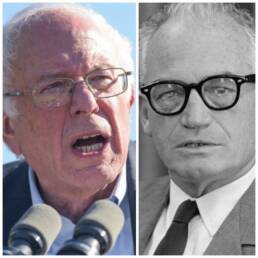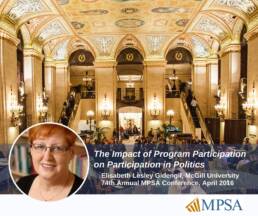MPSA Blog
Making Sure the Light at the end of the Tunnel is not a Train: Securing a Faculty Position
After more than six years as a graduate student, and having survived the rigors of academic life including assignment deadlines, student teaching, qualifying exams, proposal defense and drafting my dissertation, the end was in sight. What followed in quick succession was the realization that I…
[Im]Polite Conversation: Understanding the Mechanisms for Disengagement from Contentious Political Interactions
This post is one of a series of by MPSA members about their Federally-funded research. Here, Jaime Settle and Taylor Carlson summarize their NSF-funded research "Understanding the Mechanisms for Disengagement from Contentious Political Interaction." https://youtu.be/DoLipMQC9mg A family friend…
Beyond Diversity: The Salience of Ethnicity and Kenya’s Constituency Development Fund
Following is from a series of blog posts by MPSA members about their research that has received funding by either the National Science Foundation (NSF) or the National Endowment for the Humanities (NEH). Here, Kirk A. Harris a Ph.D. Candidate at Indiana University summarizes his NSF-funded research…
Bernie Goldwater: What Sanders Supporters Can Learn from Young Americans for Freedom
Supporters were crestfallen, but their resolve was firm. Their candidate had refused to buckle to the pressure from party elite—the usual pressure from political managers, to move to the political center and tone down strong rhetoric, seeking to enlist the support of middle-of-the-road voters and…
How Do Experiences with Government Programs Shape Political and Civic Engagement? Looking Beyond the American Case
A key insight of policy feedback theories is that government offices are sites of adult political learning. As Joe Soss explains: “…public bureaucracies provide relatively immediate experiences with government. Legislatures may host more dramatic political activities, but the police station, the…
Mass Administrative Reorganization, Media Attention, and the Paradox of Information
The following is part of a series of posts written by 2016 MPSA award recipients highlighting outstanding research presented at previous MPSA annual conferences. Our article – Mass Administrative Reorganization, Media Attention, and the Paradox of Information (Now PAR 2015) – is one of a series of…
A Portrait of Politics: The Cultural Marketing of the Chicago Neighborhood of Pilsen
The following is part of a series of posts written by 2016 MPSA award recipients highlighting outstanding research presented at previous MPSA annual conferences. Urban space is temporal, contextual and fluid. It is socially and culturally produced, often exhibiting shifting social and interpersonal…
Studying the Immediate Impact of Racially Traumatic Stressful Events
Following is one in a series of blog posts by MPSA members about their research that has received funding by either the National Science Foundation (NSF) or the National Endowment for the Humanities (NEH). Here, Principal Investigator, Byron D’Andra Orey of Jackson State University, summarizes his…
Social Media: Great Campaign Tool, but Bad News for Democracy
By now, we have all read about and analyzed Donald Trump’s (in)famous Cinco de Mayo tweet, which featured a picture of him grinning broadly while eating a taco bowl, with the following tweet: “Happy #CincoDeMayo! The best taco bowls are made in Trump Tower Grill. I love Hispanics!” Twitter and…
The Company You Keep: How Voters Infer Party Positions on European Integration from Governing Coalition Arrangements
The following is the first in a series of posts written by 2016 MPSA award recipients highlighting outstanding research presented at previous MPSA annual conferences. Democratic accountability requires citizens to be reasonably well-informed about political parties’ issue positions. Citizens may…




